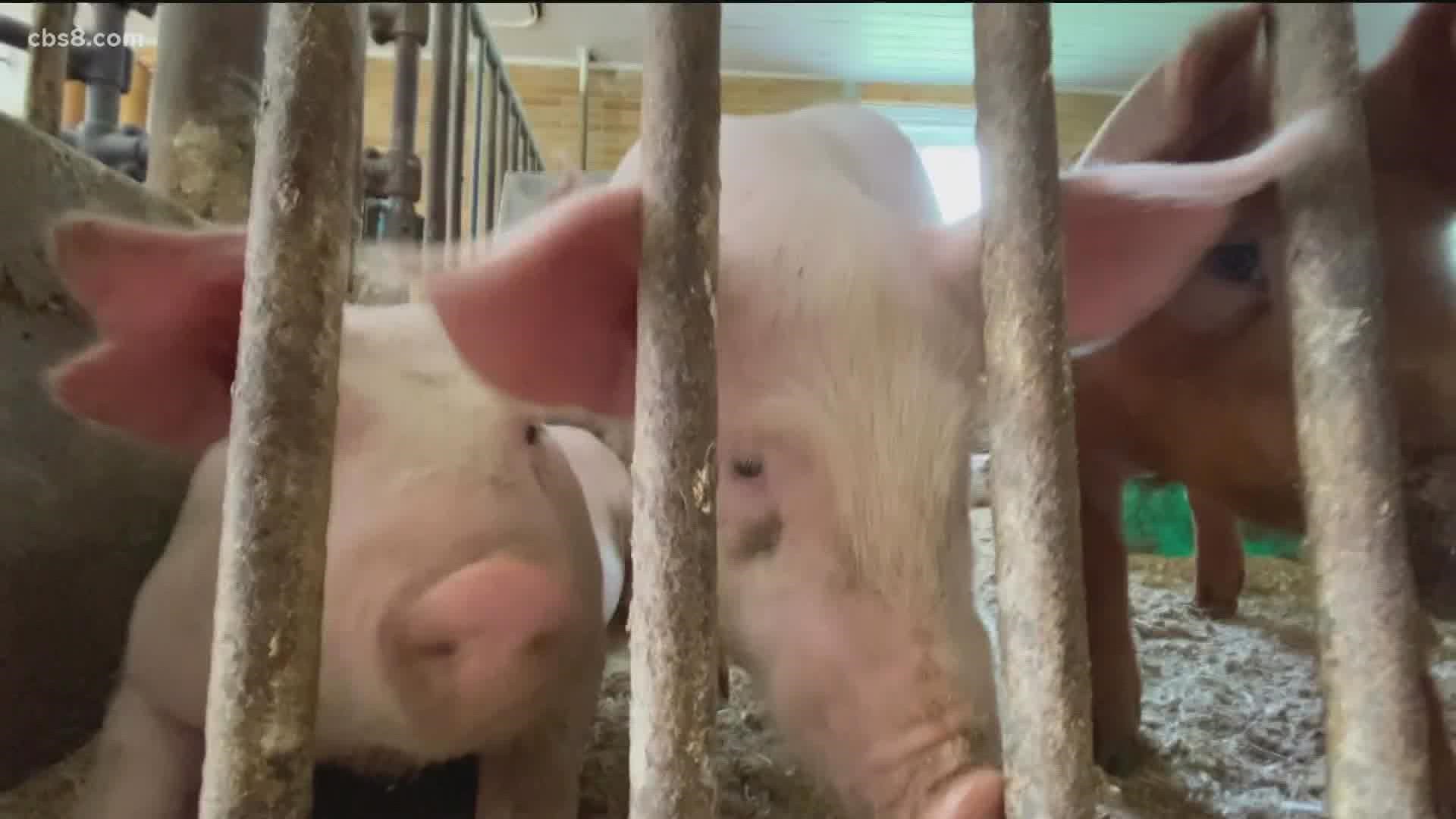CALIFORNIA, USA — As we head into a new year with high hopes for the economy to continue to recover and grow, 2022 has brought something that everyone can count on: new California state laws.
Gov. Gavin Newsom signed 770 new bills last legislative session, some of which go into effect starting Saturday.
Legislators around the state successfully passed legislation addressing climate change, law enforcement and the housing crisis.
Some of the new laws include AB-397 which will require the Employment Development Department (EDD) to provide a person additional notification prior to disqualifying them from receiving their benefits.
AB-701 will require warehouse employers to disclose quotas and pace-of-work standards to workers. AB-1276 prohibits a food facility from providing any single-use foodware accessory or standard condiment to a consumer unless requested by the consumer. And SB-3 increases the minimum wage in California.
Voter-approved farm animal rules kicking in Jan. 1 have prompted concerns about possible shortages of bacon and other pork products, amid last-minute calls to delay the new regulations. Proposition 12 – the Farm Animal Confinement Proposition – was passed by Californians with overwhelming support in 2018. Beginning on Jan. 1, 2022, Prop 12 increases the minimum confinement area allowed for “breeding pigs, egg-laying chickens and veal calves.”
It also bans the sale of products from those farms that fail to meet those new confinement standards.
On Jan. 1, things will be a little different with the California crime laws when it pertains to certain drug offenses. The new SB-73 bill allows a court to grant probation for specified drug offenses that are currently either ineligible or presumptively ineligible for probation. The new AB-453 bill adds nonconsensual condom removal (NCCR) to the existing civil sexual battery statute.
The vote by mail ballots bill - AB-37 - requires mail ballots to also apply toward local elections. A vote-by-mail tracking system would also have to be made accessible to voters with disabilities, and all voters could solicit the permission of county elections officials to cast a ballot from a certified remote vote-by-mail system. If a mail ballot is received no later than 7 days after an election, with the sent date of the ballot taken into consideration, the vote is still valid.
On Jan 1, several new state laws will go into effect, some changing the ways law enforcement agencies in the state operate. New police officers will now need to be 21 years old and hold a bachelor’s degree. Those officers will also be required to report incidents of excessive force and intervene- or face disciplinary action.
The California Housing Opportunity and More Efficiency Act - SB-9 - allows homeowners to create additional housing units on their property, based on local ordinance or ministerial approval. Proposed housing developments with one or two residential units in single-family home zoning would be considered ministerially if it would not require demolition or alterations subject to a law restricting rents to affordable levels — and the proposed development won't demolish more than 25% of existing exterior structural wall.
The bill - SB-332 - regarding prescribed burns states no one should be held financially liable for the costs of putting out a prescribed fire caused by them if certain circumstances apply. A prescribed fire describes any fire planned and controlled to burn away existing wildfire hazards, and block off paths for future wildfires. If required in local jurisdictions, a certified burn boss must review and approve plans for prescribed fires.
The Menstrual Equity for All Act of 2021 - AB-367 - requires public schools serving students from 6th grade to 12th grade to stock 50% of its restrooms with an "adequate" supply of free menstrual products.
WATCH: A look at new California laws for 2022

